Pancreatic cancer is a diagnosis that no cat owner ever wants to hear about their cat. Because the pancreas has many roles within the body, pancreatic cancer can have profound impacts on a cat’s health. The pancreas produces various hormones and enzymes, including insulin and glucagon, which regulate blood sugar, as well as various enzymes that help to digest food.
Pancreatic cancer in humans is also described as a very painful experience. Many times, the condition is only definitively diagnosed through abdominal surgery, though a physical exam, clinical signs, and certain diagnostics can also put pancreatic cancer on the list of potential concerns. Unfortunately, many cats with this condition will ultimately be euthanized, as the condition is not considered treatable.
Read on to learn more about pancreatic cancer in cats.

What Is Pancreatic Cancer in Cats?
In cats, the pancreas is found within their abdomen, between the stomach and small intestine.
The pancreas has two basic parts. One is called the endocrine pancreas, which produces hormones, and the other is called the exocrine pancreas, which serves to digest food. The hormones made by the pancreas include glucagon and insulin, which help to regulate blood sugar levels. The pancreas also makes digestive enzymes that help break down fat, protein, and carbohydrates.
Cancer is a general term for uncontrolled cellular growth. When it arises from a specific organ, it is named for that organ. For instance, cancer that arises from the pancreas is called pancreatic cancer. Because there are different cell types within the pancreas, the specific type of pancreatic cancer depends on which of these cells become cancerous.
Pancreatic cancer can develop in either the endocrine pancreas or the exocrine pancreas—for which different clinical signs can be seen as a result. There is also a single duct that serves to empty the enzymes produced by the pancreas into the small intestine. This, too, can develop its own type of cancer.
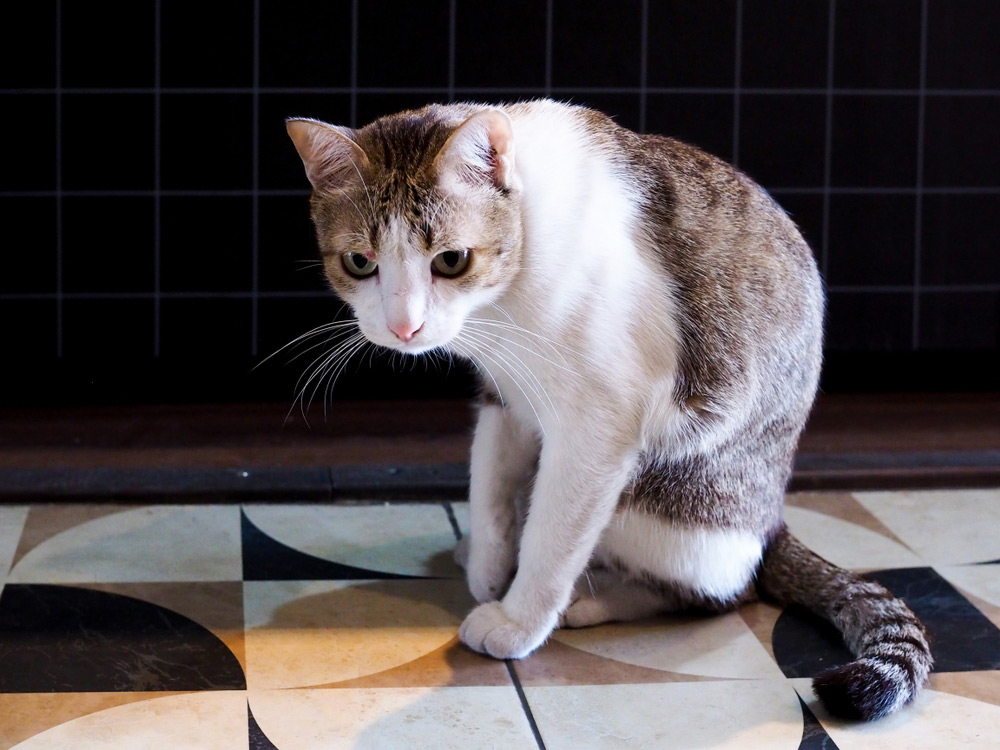
What Are the Causes of Pancreatic Cancer in Cats?
Pancreatic cancer has not been well-studied in cats.
In general, cancer tends to arise when a part of the normal cell life cycle is disrupted, allowing uncontrolled cell growth. This can happen through a genetic mutation, which can be spontaneous or caused by certain things, such as a viral infection—in which viral DNA infects cells and leads to a mutation. There also needs to be a stimulus for cell growth or disruption of cell cycle regulation, as well as an inability of normal body mechanisms to stop this growth.
In people, co-factors are considered to be alcohol intake, smoking, diabetes, pancreatitis, being overweight, or having a family history of pancreatic or other cancers. In cats, many of these simply don’t apply.
Where Are the Signs of Pancreatic Cancer in Cats?
Signs of pancreatic cancer in cats can vary widely. Often, clinical signs will relate to the gastrointestinal tract since the pancreas impacts that area of the body quite heavily.
- Changed appetite (too much or too little)
- Changed thirst (too much or too little)
- Vomiting
- Lethargy
- Hiding or other changes in behavior
- Abdominal pain, such as laying in uncomfortable positions or not wanting to be picked up
- Weight loss
- Yellowing of the gums and eyes
- Hair loss or a poor haircoat
- Lack of grooming
- Diarrhea
- White or fatty stools

What Are the Potential Dangers of Pancreatic Cancer in Cats?
The dangers of pancreatic cancer in cats are two-fold.
Firstly, it is often diagnosed in the later stages of the disease—often after it has caused severe enough illness resulting in death or a decision for euthanasia to be made.
Secondly, because certain types of pancreatic cancer can spread to other parts of the body, it can have detrimental impacts on whatever organs it spreads to—which can also eventually lead to death.
Other dangers include the risk that diabetes can develop as the disease progresses and the pancreas is unable to produce adequate amounts of insulin. Similarly, if the exocrine pancreas is affected, it may not be possible for a cat to digest food as a result.
Even non-malignant pancreatic tumors can grow large enough to cause changes in a cat’s ability to digest food, regulate blood sugar, or eat altogether. As you can see, pancreatic cancer is a disease with many possible consequences.
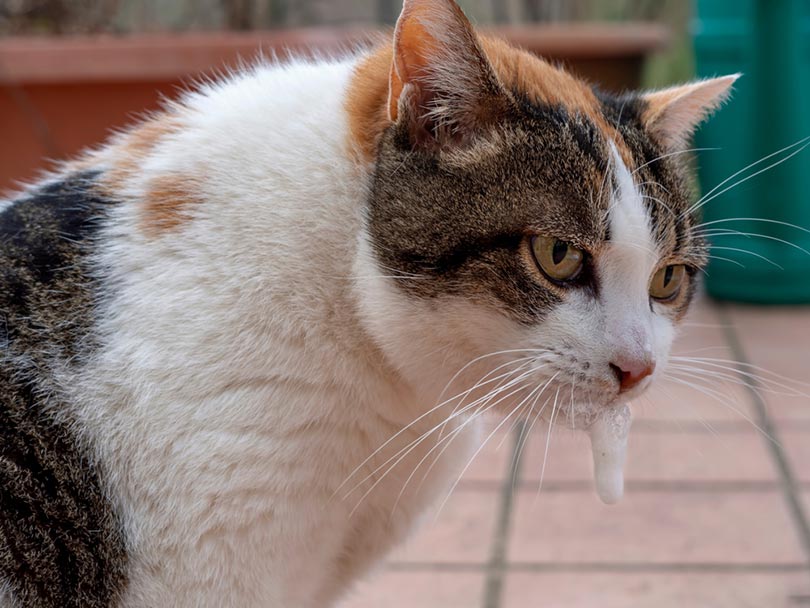

Frequently Asked Questions (FAQs)
What should I do if I suspect my cat might have pancreatic cancer?
If your cat is exhibiting more traditional signs, such as excessive weight loss, a poor haircoat, and abnormal stools, the first thing to do is to call your vet. Generally, signs like this will take weeks or months to develop, which means they have occurred gradually.
Your vet will often want to see your cat within a day or two for a physical exam and history and to schedule tests or diagnostics. In the meantime, monitor your cat’s eating and drinking, and ensure that they are using the litter box—all of which you will want to report to your vet.
If you need to speak with a vet but can't get to one, head over to PangoVet. It's an online service where you can talk to a vet online and get the advice you need for your pet — all at an affordable price!

Is pancreatic cancer contagious?
No. One cat with pancreatic cancer can’t cause other cats to get it.
How is pancreatic cancer in cats diagnosed?
Although clinical examination and medical history can identify issues in the pancreas, generally, an ultrasound is far more helpful in guiding a tentative diagnosis. Ultrasounds involve a scan of the abdomen to look for visual changes in the pancreas and surrounding organs that might indicate abnormal growths have occurred.
Sometimes, needle biopsies will be recommended as part of this process. Other times, it will be requested that samples of the pancreas be obtained directly through surgery.
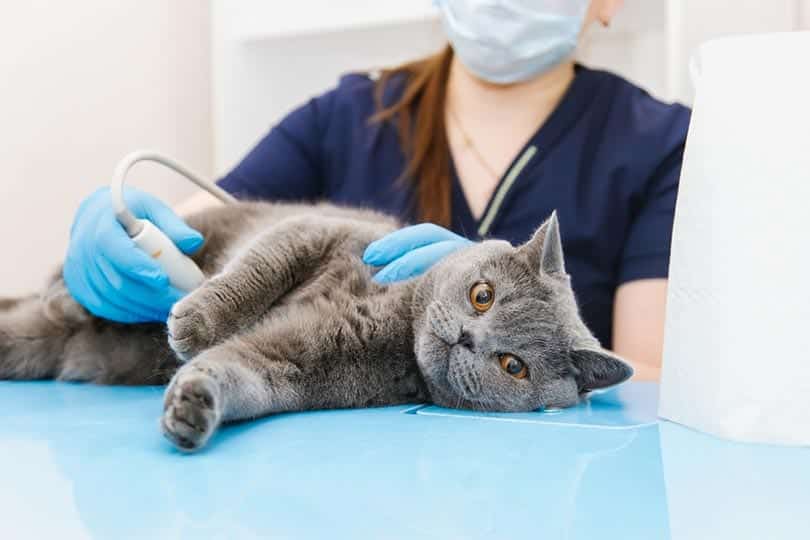
What are the treatment options for pancreatic cancer in cats?
Treatment for pancreatic cancer can depend on the type. Cancer has two general varieties, depending on whether or not it causes illness. Malignant cancers (though some people just call this “cancer”) tend to spread through the local area and cause loss of organ function. Benign or non-malignant cancers simply represent uncontrolled growth that doesn’t invade local tissue or spread and, therefore, have no significant clinical signs.
Benign pancreatic cancers (pancreatic adenomas) might require no treatment unless they become large and put pressure on surrounding tissue—in which case, they might need to be removed.
Malignant forms of pancreatic cancer can be surgically removed if they are small enough. However, this generally does not result in a good outcome, and many cats may still go on to develop subsequent tumors.
Unlike some types of cancer, pancreatic cancer generally doesn’t respond well to chemotherapy treatment or other medical therapies. As such, palliative treatments (where the intent is to keep your cat comfortable but not cure the disease) may be recommended—including pain medications and antinausea or appetite-stimulating medications.
•You might also like: What Do Cats Do All Day? The Interesting Answer!

Conclusion
Pancreatic cancer in cats is not a mild disease. Thankfully, it is relatively uncommon in this species.
If you suspect your cat may have this condition, the first thing to do is call your vet and explain what you are seeing. Often, your vet will want to do an examination and then proceed to diagnostics to determine the next best steps based on how severe the condition is. Early detection is important, as, unfortunately, many cats with pancreatic cancer will ultimately succumb to the disease.
See also:
- Giardia in Cats: Causes, Signs & Care
- Will a Cat Recover from a Stroke? (Vet Answer)
- Is Cancer Common in Cats? (Vet Answer)
Featured Image Credit: Anastasiya Tsiasemnikava, Shutterstock
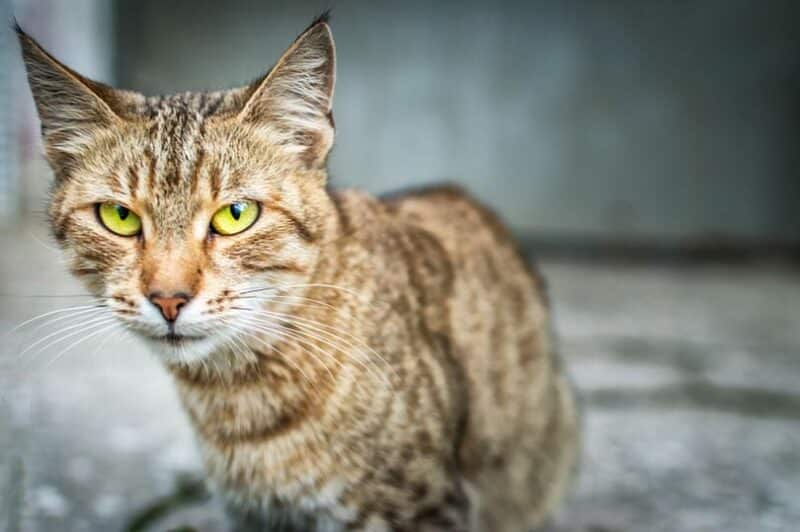



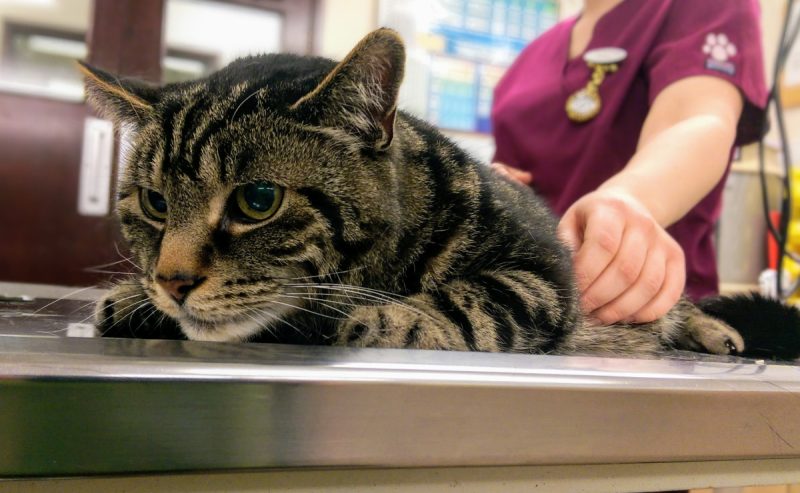
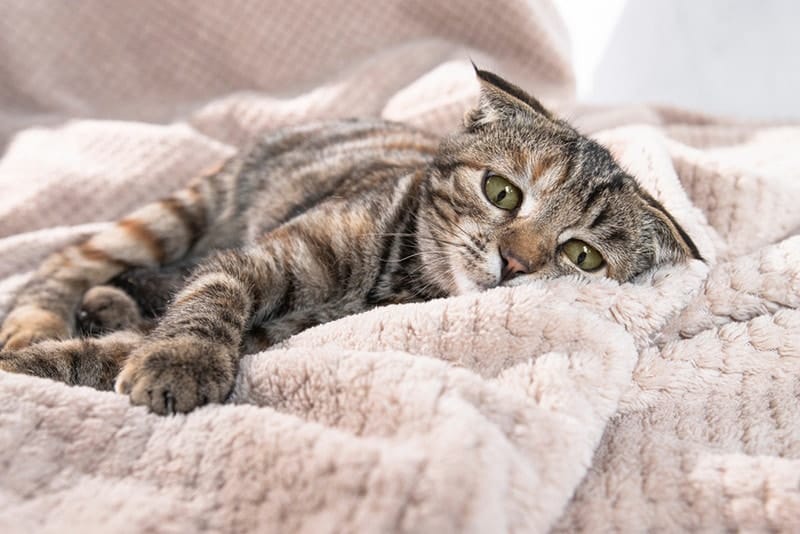


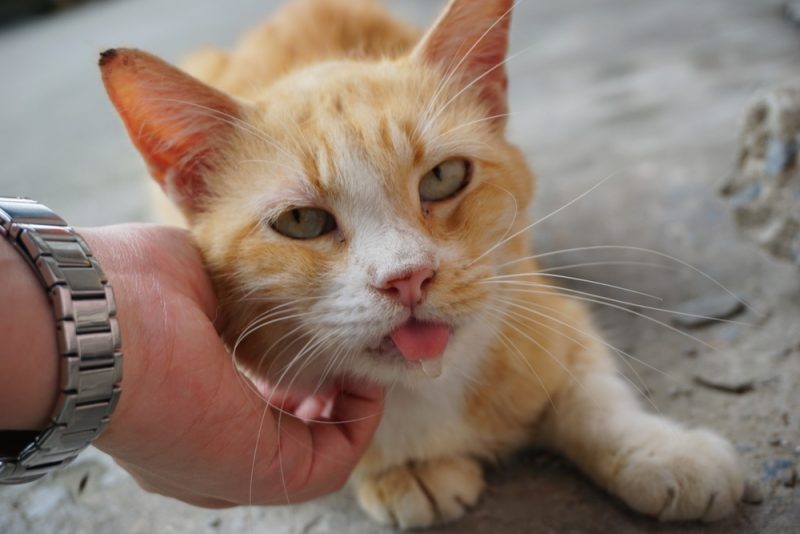
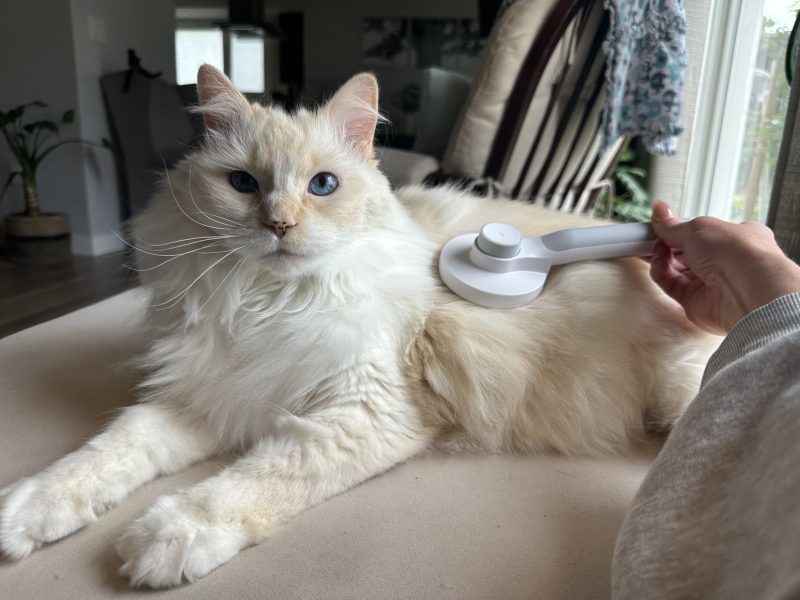
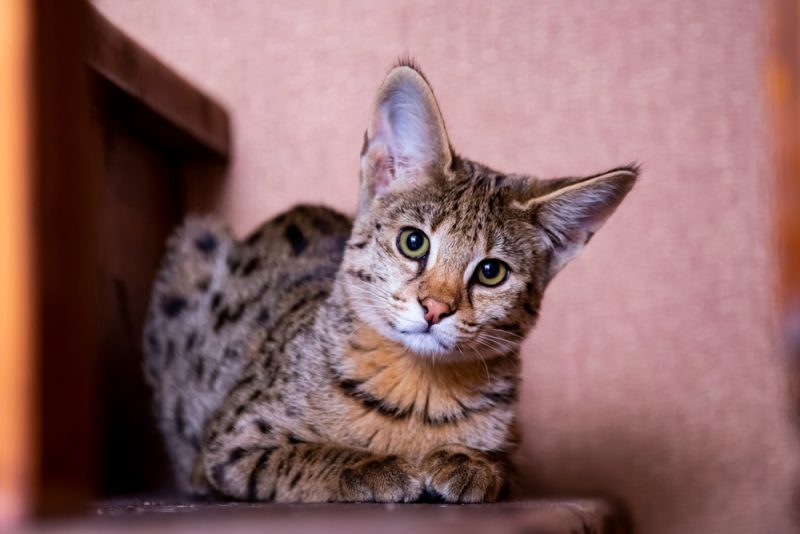


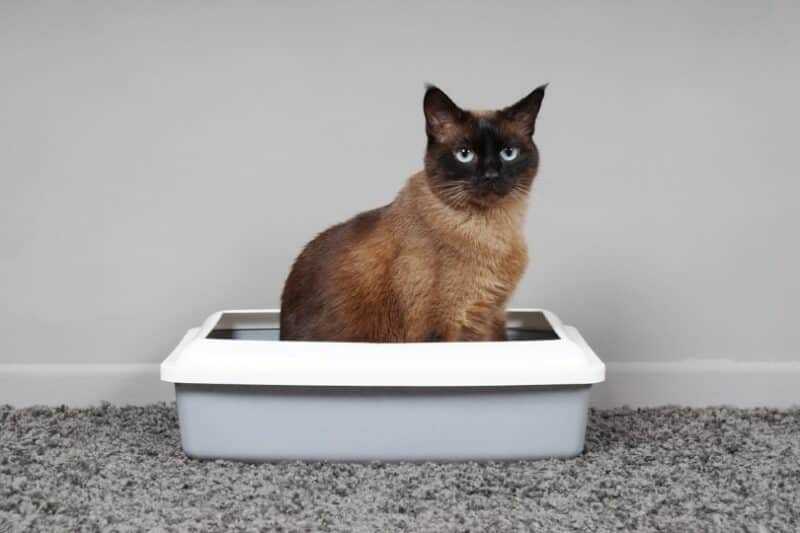

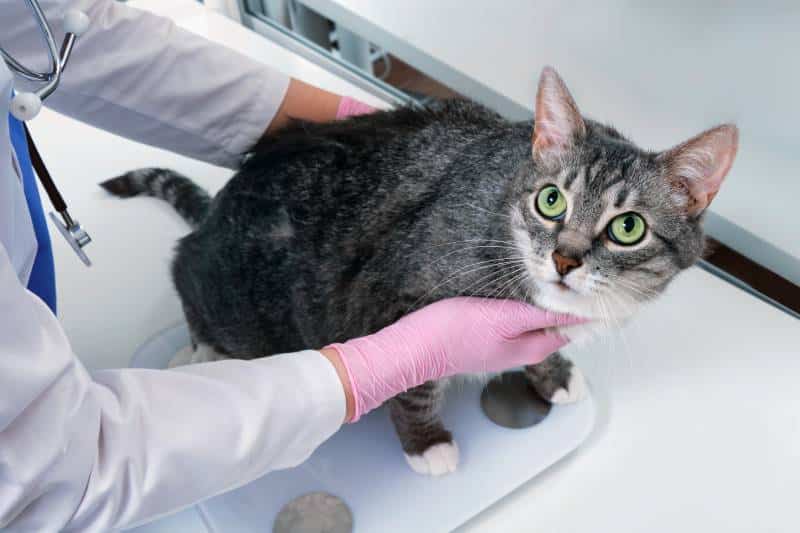

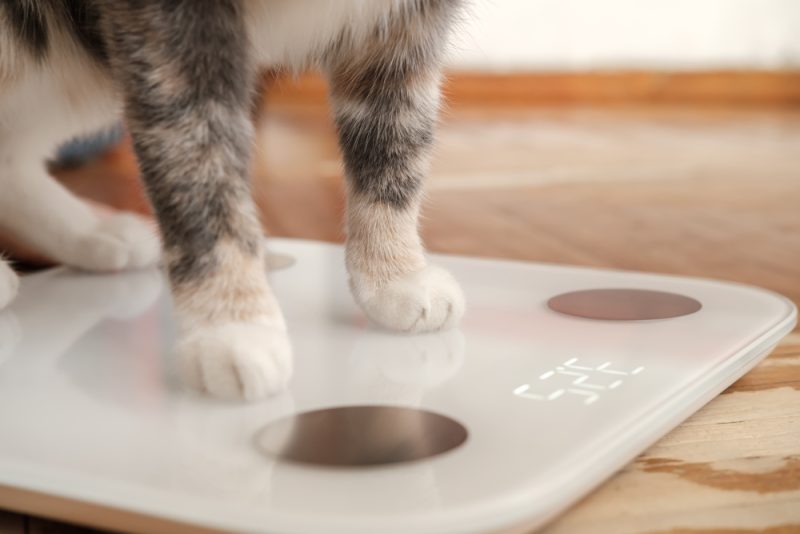



One Response
My sweet boy, a small 16 year old orange tabby was just diagnosed with pancreatic cancer this week at the emergency vet. Unfortunately his regular vet didn't catch it two years ago (and two weeks ago) when I took him in for exam because he was throwing up his dry food, and had weight loss. Wet food wasn't a problem at that time, but recently he was bringing up the wet food. He also was drinking a lot of water, but I felt that since my other cat was on the UR prescription diet which causes cats to drink more water, and I fed both cats the same dry food, I thought that it became a "habit" after the other cat died. Also, his coat became "scruffy" looking.
I wish my regular vet had taken these signs more seriously two years ago.